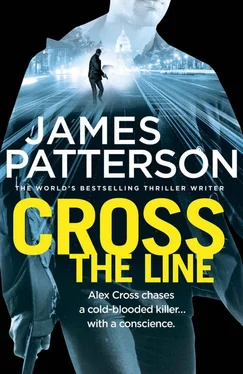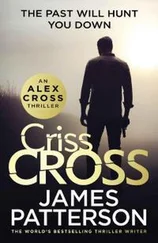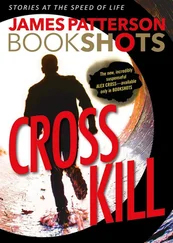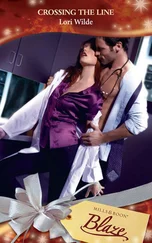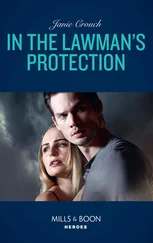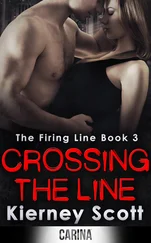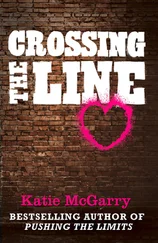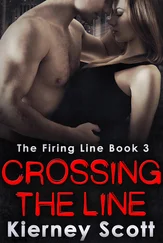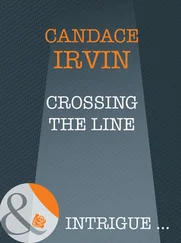“He’s like a dolphin himself,” Bree said, coming up onto the deck. “You should have seen him in the waves out there.”
“Tomorrow,” I said. “First thing.”
Ali started toward the sliding doors, but Mahoney caught him. “Around the corner, there’s an outdoor shower. Get the sand off and dry off before you go in or my lady friend will not be happy.”
“I’ve never been in an outdoor shower,” Ali said.
“It’s life-changing,” Mahoney said and he returned to his grill.
“I’m next,” Bree called to Ali as he rounded the corner.
I went to the cooler and fished us out bottles of cold Old Dominion beer, a Delaware favorite, and opened them.
“I needed this,” Bree said, taking her beer. “A break from everything.”
“I think we all needed this,” Mahoney said.
“We going to meet the mysterious lady friend?” Bree asked.
“Right here!” said a pretty brunette in white pedal pushers, sandals, and a gauzy blue top as she came around the corner with a plate of fresh-baked cookies.
She set down the plate, beamed at us, and said, “I’m Camille.”
“Not lady-friend Camille?” I said.
Camille laughed. “Indeed. Lady-friend Camille.”
“You’re spicing up the party,” Mahoney said.
“I try,” she said, and she shook our hands. “Ned’s told me so much about you both, I feel like I already know you.”
Camille was a real estate agent in the area, a widow, and as bubbly as they come. She and Ned had met at a local seafood restaurant after they’d both noticed each other eating alone on two consecutive Saturday nights. On the third Saturday, Mahoney went over and showed her his badge.
“He said he was conducting an FBI investigation and needed to ask me a few questions,” Camille said. “First question after my name was why I always eat alone. It was my question for him too.”
They were good together and we laughed and ate and probably drank a little too much. The moon rose. Nana Mama turned in. Ali fell asleep on the couch. Mahoney and Camille took a walk north on the beach, and Bree and I walked south and admired the moon tracking on the ocean and the waves.
“It’s good to be with you,” I said, wrapping a blanket around both of us.
“Hard to imagine the job right now,” Bree said.
“Means you’re tuning out, giving your brain a needed rest.”
“Parks came through surgery fine,” she said. “Lincoln too.”
“Good,” I said, and I whispered a suggestion.
“What?” She laughed softly. “Here?”
“Back in the dunes somewhere. We’ve got a blanket. Be a shame to waste the opportunity.”
She kissed me and said, “Sounds like the perfect end to a perfect day.”
Five days later, on the Thursday after Labor Day, Sampson and I climbed out of an unmarked car in the parking lot of Bayhealth Kent General Hospital in Dover, Delaware.
“Let’s hope she’s alert enough to help,” I said.
“We knew we were taking a chance,” Sampson said. “If she’s not, we’ll just come back.”
The day before, we’d received two reports that had brought us to the Bayhealth hospital. The first report, filed the week before by a Maryland state trooper, described a Ford Taurus found flipped in Maryland just south of Millersville.
The driver, a twenty-nine-year-old waitress, was later found to have died of a .45-caliber gunshot wound to the head. The shooting had to have occurred in broad daylight, yet no witnesses had come forward.
The second report, from the sheriff’s department in Kent County, Delaware, concerned a white Mustang convertible that crashed into a tree along Route 10 between Willow Grove and Woodside East. The driver, twenty-four-year-old Kerry Rutledge, a clothes buyer for Nordstrom’s, was found unconscious but alive around two a.m. on Labor Day. Rutledge had broken ribs, facial injuries, a concussion, and a four-inch-long wound across the back of her head.
Ms. Rutledge regained consciousness after a few hours, but she was confused and unable to remember anything about the crash. A sheriff’s detective interviewed her the following day. She told the detective she thought she’d been shot but couldn’t remember how it had happened or why. The wound to the back of the head was consistent with a bullet grazing the skin, so we thought it worth the drive to try to talk to her ourselves.
At the front desk, we learned that Kerry Rutledge was out of intensive care and under observation pending the results of neurological tests. When we reached the nurses’ station, we showed our badges. The head nurse said Rutledge’s parents had been in to see her earlier, and the last time she’d checked, her patient was asleep.
But when we knocked softly and entered her room, the Nordstrom’s buyer was propped up, sipping a cup of ice water, and gazing at a television on mute. She was a wisp of a woman with pale, freckled skin and fine copper hair that hung about the bandages that covered her bruised face.
“Ms. Rutledge?” I said, and I introduced Sampson and myself.
“You’re here because I was shot,” she said with a flat affect.
“That’s right,” Sampson said. “Did you see the person who shot you?”
Her head rotated a degree to the right and back. “I’m having trouble remembering things.”
I hesitated, thinking how best to proceed, and then said, “How do you know you were shot, Ms. Rutledge?”
Her head rotated again, and stayed cocked to the right as she blinked and pursed her lips. “He was right there. He... he had a gun. I saw it.”
“That’s good. What kind of gun?”
“A pistol?”
“Even better. Where was he? And where were you?”
Rutledge’s eyes got soft and her head started to droop ever so slightly before she frowned and came out of it and said, “I’m an idiot. What was I...”
“Ms. Rutledge?”
“I was texting,” she said. “I’d been to a party and I was on my way to my parents’ house in Dover. I had the top and the windows down. It was a pretty night and I was texting a friend. I remember that. Just before I was shot.”
“What time was that?”
“I don’t know. Late.”
“So you’re driving,” Sampson said. “Eyes on and off the road because you’re texting?”
Her mouth hung slightly open, but she gave a faint nod. “I’ve driven that road a thousand times. Maybe more. Oh God, what’s my car look like?”
“A mess,” I said. “But you were texting, and then you saw the pistol?”
“Yes. I mean, I think so.”
“What happened in between? Before you saw the gun and after you stopped texting?”
She looked at me blankly, and I decided to take another approach.
“How fast do you think you were going?”
“Not fast. Fifty? I...” Rutledge said, and she paused as if noting distant and dim things.
“What are you seeing?” I said.
“There was a headlight,” she said. “A single one in the rearview.”
“A motorcycle headlight?”
Rutledge’s eyes went wide at that. She took a deep, sharp breath and pressed hard back into the raised mattress, not realizing how much that would hurt her ribs.
“Ohh,” she moaned. “Ohh, that was just... bad.”
She closed her eyes. A minute passed, then two, and gradually the spasm of pain released her and left her breathing so rhythmically I feared she’d fallen asleep.
But then her eyelids fluttered open and she looked at us more clear-eyed.
“I’m seeing more of it now,” she said. “He drove up alongside of me, like he was passing, and then he backed off and pulled in behind me again. I put my phone on the console, got both hands on the wheel, and that’s when he came again, right up beside me on one of those big motorcycles with a windshield. I looked to my left and he was right there, five or six feet away, with, like, a black helmet and visor, aiming the gun at me. He... he...”
Читать дальше
